Let Us Thank God!
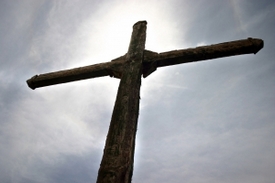 “In every thing give thanks: for this is the will of God in Christ Jesus concerning you” (KJV, 1 Thess. 5:18).
“In every thing give thanks: for this is the will of God in Christ Jesus concerning you” (KJV, 1 Thess. 5:18).
In this Thanksgiving season—and throughout the year—let us thank God for Who He is, what He has said and what He has done, is doing and will yet do.
We thank God the Father for His perfect holiness and His infinite love: “God so loved the world, that he gave his only begotten Son…” (John 3:16). He did not simply forgive our sins. He maintained His holy character and standards by paying the essential price for our sins. “He loved…he gave!” This was not cheap grace. “He…spared not His own Son, but delivered him up for us all” (Rom. 8:32). Thank You, Heavenly Father for giving Your Son for us!
We also thank God the Son for the marvelous display of His wisdom and power in creating the universe, the earth and all living things. “All things were made by him; and without him was not any thing made that was made” (John 1:3). “For by him were all things created, that are in heaven, and that are in earth, visible and invisible” (Col. 1:16). “In him we live, and move, and have our being” (Acts 17:28). Thank You, Lord Jesus, for creating us!
We also thank God’s Son for His moment-by-moment work of maintaining the universe that He created. “By him all things consist” (i.e., hold together. Col. 1:17). He “uphold(s) all things by the word of his power” (Heb. 1:3). Not only does He prevent things from sinking into non-existence, He also directs everything toward a God-honoring ultimate goal by His providence. Thus, the Father has appointed Him to be “heir of all things, by whom also he made the worlds” (literally, the ages—i.e., mass-energy through time. Heb. 1:2). It is only because the Son of God is in charge of the universe (not Satan or chance) that “all things” can “work together for good to them that love God” (Rom. 8:28). Thank You, Lord Jesus, for preserving and guiding all things!

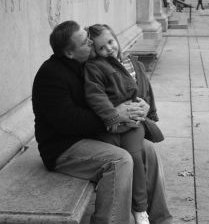
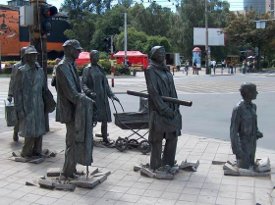 Maybe three years in Poland has left me somewhat nostalgic, but I love America; I miss America. As Ginger and I learn the language and observe this culture so foreign to our own, we often find ourselves comparing the two. One culture is home, and the other, well … it’s growing on us. Many similarities can be observed but a few stark differences exist.
Maybe three years in Poland has left me somewhat nostalgic, but I love America; I miss America. As Ginger and I learn the language and observe this culture so foreign to our own, we often find ourselves comparing the two. One culture is home, and the other, well … it’s growing on us. Many similarities can be observed but a few stark differences exist.
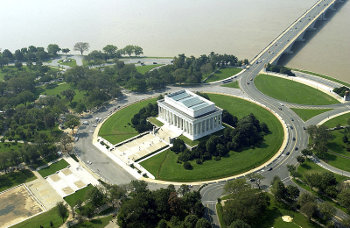 The Lincoln memorial in Washington D.C. is hallowed ground in my book. I stood at this sacred spot in 2005 and was deeply moved.
The Lincoln memorial in Washington D.C. is hallowed ground in my book. I stood at this sacred spot in 2005 and was deeply moved.
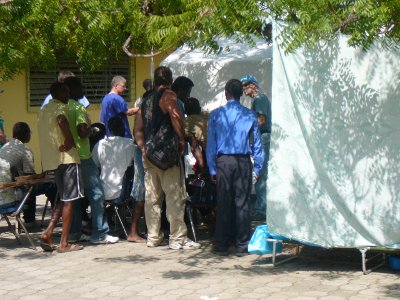 Ten days after the earthquake shook Haiti I was offered a once-in-a-lifetime opportunity to join a shock and trauma team that had access into Haiti through indigenous and wealthy benefactors. The team consisted of three orthopedic surgeons, an ER doctor, a pediatrician, and several nurses. We worked under the auspices of a respected Haitian surgeon who is one of the pillars of the Leogane society. Though this was not a Christian team, I was offered a role as “chaplain” because of my knowledge of the French language and the need for translation service. A “door of utterance” was opened for me to minister to both Haitians and Americans in the city of Leogane, one of the most dramatically affected cities near the epicenter of the January 12 quake. Over the next few weeks I will share with SI readers snippets from my journal containing my observations and opinions about the situation in Haiti.
Ten days after the earthquake shook Haiti I was offered a once-in-a-lifetime opportunity to join a shock and trauma team that had access into Haiti through indigenous and wealthy benefactors. The team consisted of three orthopedic surgeons, an ER doctor, a pediatrician, and several nurses. We worked under the auspices of a respected Haitian surgeon who is one of the pillars of the Leogane society. Though this was not a Christian team, I was offered a role as “chaplain” because of my knowledge of the French language and the need for translation service. A “door of utterance” was opened for me to minister to both Haitians and Americans in the city of Leogane, one of the most dramatically affected cities near the epicenter of the January 12 quake. Over the next few weeks I will share with SI readers snippets from my journal containing my observations and opinions about the situation in Haiti.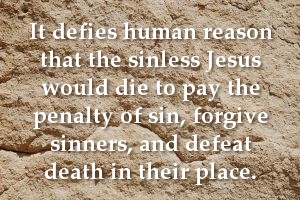 Unless you reason outside the box of human reason, you can forget about understanding the Jesus of the Bible. Only those willing and able to break the constraints of common experience and human rationalism can hope to make any sense of Jesus’ life and ministry.
Unless you reason outside the box of human reason, you can forget about understanding the Jesus of the Bible. Only those willing and able to break the constraints of common experience and human rationalism can hope to make any sense of Jesus’ life and ministry.
Discussion